第46章
When master and ass, drawing a heavy burden between them, have climbed a steep mountain range together; clambering over sharp rocks and across sliding gravel where no water is, and herbage is scant; if, when they were come out on the top of the mountain, and before them stretch broad, green lands, and through wide half-open gates they catch the glimpse of trees waving, and there comes the sound of running waters, if then, the master should say to his ass, "Good beast of mine, lie down! I can push the whole burden myself now: lie down here; lie down, my creature; you have toiled enough; I will go on alone!" then it might be even the beast would whisper (with that glimpse through the swinging gates of the green fields beyond)--"Good master, we two have climbed this mighty mountain together, and the stones have cut my hoofs as they cut your feet.Perhaps, if when we were at the foot you had found out that the burden was two heavy for me, and had then said to me, 'Lie down, my beastie; I will carry on the burden alone;lie down and rest!' I might then have listened.But now, just here, where I see the gates swinging open, a smooth road, and green fields before us, Ithink I shall go on a little farther.We two have climbed together; maybe we shall go on yet, side by side."For the heart of labouring womanhood cries out today to the man who would suggest she need not seek new fields of labour, that child-bearing is enough for her share in life's labour, "Do you dare say to us now, that we are fit to do nothing but child-bear, that when that is performed our powers are exhausted? To us, who yet through all the ages of the past, when child-bearing was persistent and incessant, regarded it hardly as a toil, but rather as the reward of labour; has our right hand lost its cunning and our heart its strength, that today, when human labour is easier and humanity's work grows fairer, you say to us, 'You can do nothing now but child-bear'? Do you dare to say this, to us, when the upward path of the race has been watered by the sweat of our brow, and the sides of the road by which humanity has climbed are whitened on either hand by the bones of the womanhood that has fallen there, toiling beside man? Do you dare say this, to us, when even today the food you eat, the clothes you wear, the comfort you enjoy, is largely given you by the unending muscular toil of woman?"As the women of old planted and reaped and ground the grain that the children they bore might eat; as the maidens of old spun that they might make linen for their households and obtain the right to bear men; so, though we bend no more over grindstones, or labour in the fields, or weave by hand, it is our intention to enter all the new fields of labour, that we also may have the power and right to bring men into the world.It is our faith that the day comes in which not only shall no man dare to say, "It is enough portion for a woman in life that she bear a child," but when it will rather be said, "What noble labour has that woman performed, that she should have the privilege of bringing a man or woman child into the world?"But, it has also been objected, "What, and if the female half of humanity, though able, in addition to the exercise of its reproductive functions, to bear its share in the new fields of social labour as it did in the old, be yet in certain directions a less productive labourer than the male? What if, in the main, the result of the labour of the two halves of humanity should not be found to be exactly equal?"To this it may be answered, that it is within the range of possibility that, mysteriously co-ordinated with the male reproductive function in the human, there may also be in some directions a tendency to possess gifts for labour useful and beneficial to the race in the stage of growth it has now reached, in excess of those possessed by the female.We see no reason why this should be so, and, in the present state of our knowledge, this is a point on which no sane person would dogmatise; but it is possible! It may, on the other hand be, that, taken in the bulk, when all the branches of productive labour be considered, as the ages pass, the value of the labour of the two halves of humanity will be found so identical and so closely to balance, that no superiority can possibly be asserted of either, as the result of the closest analysis.This also is possible.
But, it may also be, that, when the bulk and sum-total of human activities is surveyed in future ages, it will be found that the value of the labour of the female in the world that is rising about us, has exceeded in quality or in quantity that of the male.We see no reason either, why this should be; there is nothing in the nature of the reproductive function in the female human which of necessity implies such superiority.